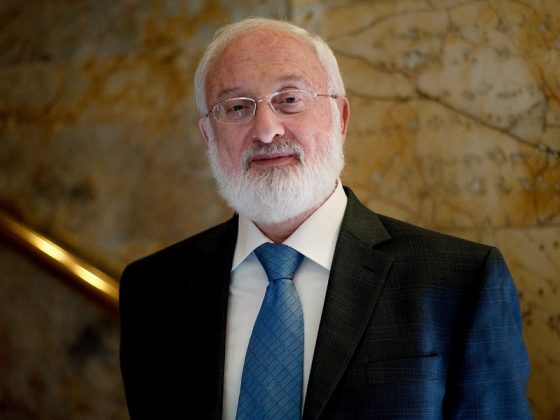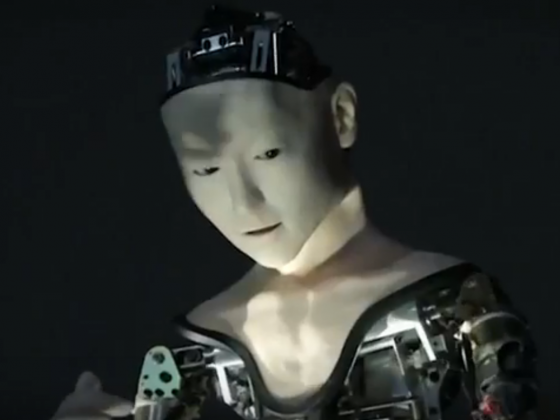How to be happy has become an algorithm hard to decipher. Is it because we are using the wrong formula? Fulfillment does not depend on money, power, or luck, but on positive human relations.
How to be happy has become an algorithm hard to decipher. Is it because we are using the wrong formula? Fulfillment does not depend on money, power, or luck, but on positive human relations. This is the principle of the happiness course at Yale and Stanford, with the course already the most popular in the history of both universities.
The course is based on positive psychology. It states that our level of joy in life is determined by the quality of our interaction with others. In fact, people are more satisfied in an environment where solidarity, support and a sense of belonging prevail. In contrast, competition to dominate and be above others put a person under constant stress, pressure and isolation.
It explains why people that seem to have it all may suffer severe depression to the point that some are taking their own lives. The recent suicides of the American designer Kate Spade and the TV personality Anthony Bourdain exemplify this situation. As a contagious effect, days after their deaths, the number of calls to the crisis hotlines in the US rose by 65% and the volume of text emergency lines spiked to 116%.
Globally, around 800,000 die due to suicide every year, about one person every 40 seconds, according to the World Health Organization. The statistics show that the lack of fulfillment is reaching epidemic proportions. Attributing it to external conditions would be a simplistic explanation. A person can live in the middle of a forest in a log cabin and feel happy, or have a luxurious apartment in a skyscraper yet feel miserable and lonely. What is the key factor that makes the difference between those states? It is the influence of the environment.
“People are more satisfied in an environment where solidarity, support and a sense of belonging prevail.”
What distinguishes us from other species is the social aspect. We are shaped and influenced by our surroundings at every moment of our lives, through our family, work and the media. One can be oppressed or elevated by the environment depending on how the person absorbs such influence.
An egalitarian society based on solidarity, where everyone cares for each other—gets as much as one needs and works for the good of all—is the ideal framework for people’s happy existence and a solid ground for their children’s thriving future.
On the contrary, our egoistic and aggressive pursuit of wealth, honor, knowledge and power cannot be a source of happiness. This is because the moment we fulfill those desires, a new void appears leaving us dissatisfied again. Therefore, the ultimate joy can only be at a level above individual pursuits of happiness, by building together a cohesive social fabric that will positively influence every member of society.
As written by Kabbalist Rav Yehuda Ashlag in the newspaper The Nation, “It is a must for every nation to be strongly united within, so all the individuals within it are attached to one another by instinctive love. Moreover, each individual should feel that the happiness of the nation is one’s own happiness, and the nation’s decadence is one’s own decadence… It means that the people of that nation, who sense that harmony, are the ones who make the nation, and the measure of happiness of the nation and sustainability are measured by their quality.”
However, our current education system and environment revere competition and achievement for personal gain, even if it is at the expense of others. This might be the most important discovery for the students at Yale and Stanford: that it is naïve to think that something will change if we continue being controlled by our selfish nature.
“We are shaped and influenced by our surroundings at every moment of our lives, through our family, work and the media. One can be oppressed or elevated by the environment depending on how the person absorbs such influence.”
Therefore, even the most prestigious institution cannot teach us how to be happy. The solution would be to enroll the entire society in happiness studies, but it is somehow comfortable with the status quo, which is the core message that the person, a product of the environment, is exposed to.
However, from one heartbreak to another, from crisis to crisis, from despair to pain, gradually the whole society will be aware of its current bad state. Then it will discover the path of Kabbalah, chosen by unique individuals “disengaged” from the devious values of society to implement a transformational process to encourage close bonds of unity and love, wherein, as mentioned above, lies happiness.
Kabbalah is a method of building a unified and happy human society. It is a method that teaches values necessary for existence in a healthy social framework, how to relate to others in a balanced manner. Moreover, it teaches a step-by-step process on how to positively connect in order to draw a force dwelling in nature that can change human nature. Thus, a person will learn not to aspire only to fulfill his or her own happiness, but that of others as well. A harmonious human society will then be built to ensure each other’s happiness.
In such a society, the way to measure an individual’s happiness will be simple: A person whose happiness and positive emotions burst outside all the time—from the individual to others and from others to the individual—is a happy and satisfied person. We will then all graduate with honors from the university of life.
“An egalitarian society based on solidarity, where everyone cares for each other — gets as much as one needs and works for the good of all — is the ideal framework for people’s happy existence and a solid ground for their children’s thriving future.”












